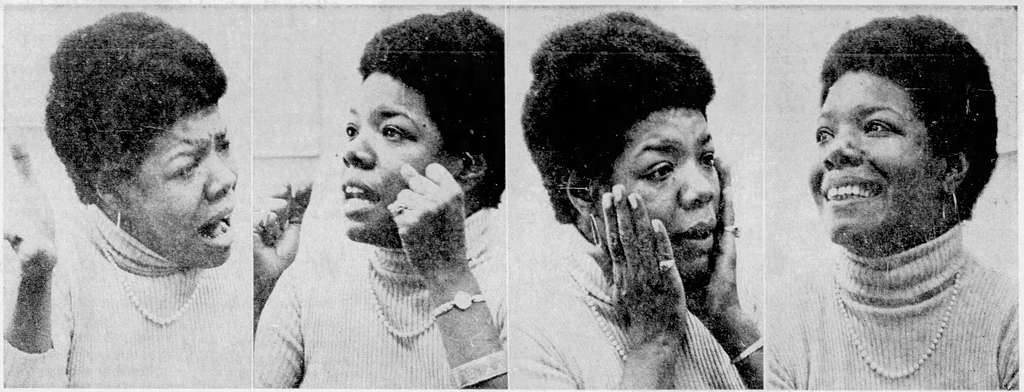It’s a surprisingly common feeling, yet few of us talk about it openly: the nagging doubt that, despite our successes, we just don’t measure up. Imposter syndrome affects an estimated 70% of people, hitting especially hard among high achievers. It’s that internal voice that whispers (and sometimes shouts), “You’re a fraud, and soon, everyone will know.”
If you’re battling these feelings, you are not alone. The iconoclast Maya Angelou and many other public figures have shared their struggles with this affliction:
“Each time I write a book, every time I face that yellow pad, the challenge is so great. I have written eleven books, but each time I think, ‘Uh oh, they’re going to find out now. I’ve run a game on everybody and they’re going to find me out.”
– Maya Angelou

So now that we know we are in great company, let’s delve into what imposter syndrome entails and why it’s so insidious.
Imposter syndrome is characterized by persistent self-doubt and the fear of being exposed as a fraud, despite clear evidence of competence and recognition from others as capable and successful. It manifests in some pretty unhelpful ways, like procrastination, perfectionism, workaholism and other types of self-sabotage, increasing anxiety and frequently leading to depression. Ironically, it often intensifies as an individual becomes more successful. It becomes a self-fulfilling prophecy seemingly impossible to shake. This unwelcome companion has been with me for as long as I can remember, so allow me to share some of my experience with it.
Work in Progress: Me
Growing up in a financially volatile environment, my primary aim in choosing a career was stability. This goal drove me into the tech world of Silicon Valley, armed only with basic computer science training. I didn’t take time to dream or truly assess my skills and career path; I just wanted financial security. As I climbed the corporate ladder, external signs suggested I was successful, but internally, my imposter insisted: “you don’t belong here, you don’t have a degree, you don’t know anything and lack the experience to lead a team.”
This constant feeling of being an imposter made my work life exhausting. I pushed myself too hard, took every problem personally, and sadly, ended up burning bridges instead of building connections. I tried working on myself, but without much success. There wasn’t a definitive breaking point; rather, it felt like I was banging my head against the wall—trying as hard as I could, yet things kept getting worse. It took an act of courage to step back—25 years into a well-paying professional trajectory—and acknowledge that the direction my career was going was not serving me.
Of course, I spent a fair amount of time mulling over my failures; I needed a reality check. I went on a feedback-gathering tour, dove into talk therapy, and began establishing healthier routines. A compassionate inner dialogue became an important practice. The shift hasn’t been instantaneous, but I am glad to report that I get along better with myself these days.
I work to be candid with myself about my strengths and, crucially, my weaknesses. I will never be perfect, and my idea of a great career is ever evolving. While the hamster wheel of imposter syndrome is still turning, I am learning every day that I can just step off. Here are some of the strategies that worked for me.
Flip the Script
Defanging the imposter narrative is entirely within your grasp. It begins by ensuring you don’t let the blooper reels of your life become the main plot line, but rather see them as valuable lessons and stepping stones. Additionally, recognizing the tendency to evaluate successes through someone else’s benchmarks can be a powerful step towards a more positive view of your achievements. Remember, success isn’t a one-size-fits-all path—”it may be not as you’d imagined it, but it’s uniquely yours“.
You’ve already made significant strides by recognizing and reflecting on your challenges. To accelerate your transformational journey, here are some practical steps to combat imposter syndrome and increase confidence:
1. Open Up: Talking about these feelings helps take away their power. It’s like turning on the lights to reveal there’s nothing really monstrous in the room. Whether with a therapist, coach, mentor, friend, or trusted coworker, finding an empathetic space to talk can help strip away the stigma and the shame.
2. Cultivate Clarity: Comparing your achievements to others is a classic form of self-sabotage, a trend that social media amplifies exponentially. If moderating your social media use isn’t in the cards, especially if your job or hobbies depend on it, recognize its impact on your feelings and balance it by spending time outdoors or engaging in regular physical activity.
3. Change the Channel: Adopting new, constructive, ‘non-imposter’ mental habits can profoundly transform how you view yourself and your capabilities. I can help guide you through a variety of proven methodologies, building positive habits that not only challenge the imposter mindset but also bolster your true potential and redefine what success looks like for you.
Moving Forward
Imposter syndrome is not uncommon, nor is it insurmountable. As we navigate our personal and professional journeys, it’s vital to remember that the imposter is a distortion and a bad habit. By opening up about our doubts, actively shifting our mental narratives, and embracing strategies that foster self-awareness and resilience, we can diminish its power over us. My own experiences have shown me the benefits of confronting these challenges head-on. If you see reflections of your story in mine, know that you are not alone. We can work together to find the path that celebrates your unique strengths and successes, so you can move forward with confidence and clarity.
What strategies have you found helpful in dealing with imposter syndrome?

